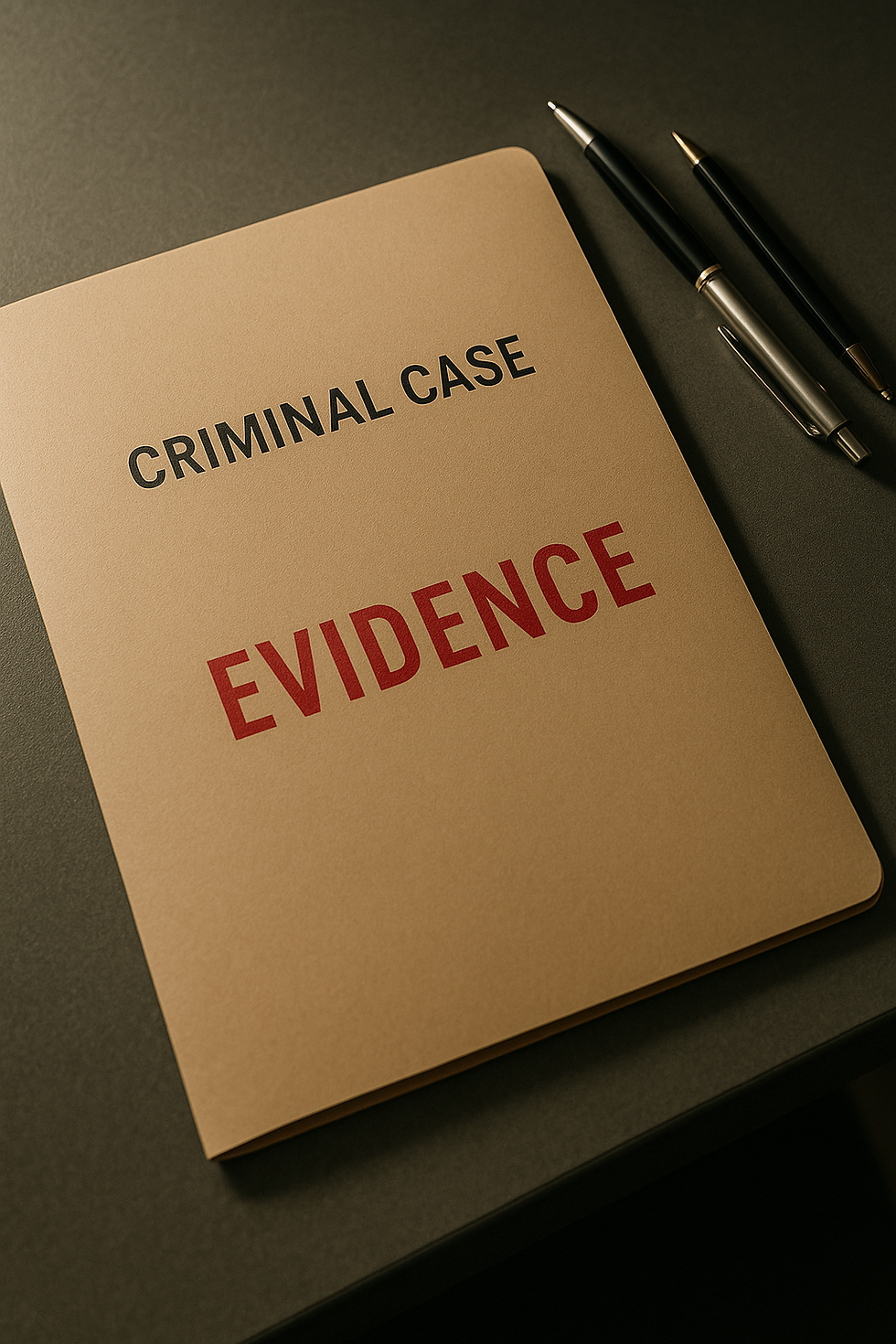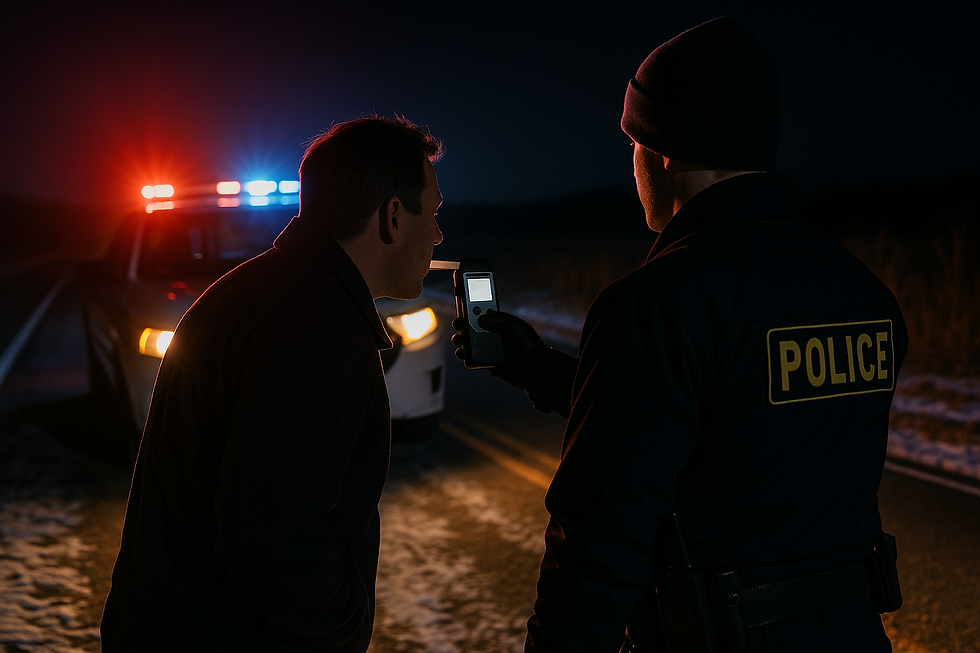Can I Be Charged With a Crime Without Evidence in North Dakota?
- Heartland

- Jul 25, 2025
- 4 min read

Being charged with a crime in North Dakota is a frightening experience—especially if you feel like there’s no real evidence against you. You might be asking:
Can the police arrest me with no proof?
What kind of evidence is actually required to file charges?
What should I do if I’m being investigated?
Let’s break down what the law actually says, and what steps you can take to protect your future.
What Does It Mean to Be "Charged With a Crime" in North Dakota?
Being charged with a crime means the State of North Dakota, usually through a county prosecutor, has filed a formal accusation that you committed a criminal offense. This could be a misdemeanor, felony, or even an infraction depending on the conduct alleged.
In many cases, charges are filed before an arrest happens. In others, you might be arrested first and formally charged later.
Can I Be Charged Without Any Evidence?

Short answer: No—you cannot be lawfully charged without some form of evidence.But here’s the catch: the threshold is lower than you might think.
What Counts as "Evidence"?
In criminal law, "evidence" can include:
Eyewitness testimony
Surveillance footage or photos
Physical evidence (e.g., drugs, weapons)
Digital evidence (texts, emails, social media)
Police observations
Statements or confessions
Even a single witness statement can be enough for the prosecutor to file charges—though it may not be enough to win at trial.
What’s the Legal Standard to Charge Someone?
To formally charge someone in North Dakota, a prosecutor needs probable cause—a reasonable belief, based on facts and circumstances, that a crime was committed and you were involved.
Under N.D.R.Crim.P. 3, a complaint must be supported by “sworn testimony or affidavit” establishing probable cause.
This is a much lower standard than “beyond a reasonable doubt,” which is what’s required for a conviction at trial.
Commonly asked questions:
Can police arrest you without hard evidence in North Dakota?
Yes, but only if they have probable cause to believe you committed a crime. That doesn’t mean they need video footage or physical proof—sometimes, an officer’s observation or a witness statement can be enough for an arrest. However, if there’s not enough supporting evidence later, the charges may be dropped.
What is considered “enough evidence” to charge you in North Dakota?
To charge someone, prosecutors only need probable cause, not overwhelming proof. For example, if someone accuses you of assault and has a visible injury, that could be enough to file charges—even if you deny it.
Can a case be dismissed for lack of evidence?
Yes. If there isn’t enough evidence to support the charges, a defense attorney can request that the case be dismissed. Judges can also dismiss charges during a preliminary hearing if the state fails to show probable cause.
Is hearsay evidence enough to be charged?
Hearsay alone usually isn’t enough unless it falls under a legal exception. But it’s not uncommon for charges to be based heavily on statements made to police. A skilled defense lawyer can challenge unreliable or uncorroborated hearsay during pretrial motions.
Should I talk to police if I’m innocent?
Not without a lawyer. Even if you’re innocent, speaking to law enforcement without legal guidance can backfire. You have a constitutional right to remain silent—use it.
Real-World Example: “He Said, She Said” Assault Charges
Let’s say you and your ex had a heated argument in Minot. The police are called, and your ex tells them you hit them. You deny it. There are no injuries, no footage, no other witnesses.
Can you still be charged? Yes—if the prosecutor believes your ex’s statement is credible, they may file simple assault charges under N.D.C.C. § 12.1-17-01.
Will you be convicted? Not necessarily. An experienced criminal defense attorney can argue that the state’s evidence is weak or unreliable, and push for a dismissal or acquittal.

What Happens After You’re Charged With a Crime in North Dakota?
Here’s a brief overview of what happens next:
Initial Appearance – You’ll be informed of the charges and your rights.
Bail Hearing – A judge decides whether you stay in jail or can be released.
Preliminary Hearing (for felonies) – The court decides if there’s enough evidence for trial.
Trial or Plea Negotiation – You either go to trial or reach an agreement with the state.
Throughout this process, your attorney plays a critical role in challenging the evidence and protecting your rights.
What Should I Do If I’ve Been Charged With a Crime in North Dakota?
If you’ve been charged—or even suspect you’re under investigation—your next steps matter.
Do not talk to police without a lawyer.
Document everything you can remember.
Reach out to an experienced criminal defense attorney immediately.
At Heartland Law Office, we’ve helped individuals across Bismarck, Minot, Williston, and beyond push back against weak or unfair charges. Whether you’re facing a drug offense, assault, DUI, or another allegation, we’re here to fight for your rights.
Related Topics
Need help now?
Call 701-JUSTICE or visit our contact page to schedule a consultation.
This article is for informational purposes only and does not constitute legal advice. Always consult with a licensed attorney regarding your specific situation.





